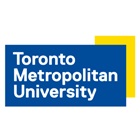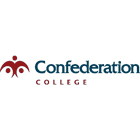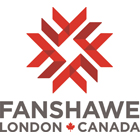- News and articles
- Events
- Find usIDP AustraliaIDP BahrainIDP CambodiaIDP CanadaIDP ChinaIDP EgyptIDP GhanaIDP Hong KongIDP IndiaIDP IndonesiaIDP IranIDP JordanIDP KenyaIDP KoreaIDP KuwaitIDP LebanonIDP MalaysiaIDP MauritiusIDP Middle EastIDP NepalIDP New ZealandIDP NigeriaIDP OmanIDP PakistanIDP PhilippinesIDP Saudi ArabiaIDP SingaporeIDP Sri LankaIDP Taiwan, ChinaIDP ThailandIDP TurkeyIDP UAEIDP VietnamIDP Corporate
- Social
- English
Know why Canada is so popular with Bangladeshi students
Hosting nearly half a million international students, Canada is known to offer high-quality education at affordable tuition fees with globally recognised degrees. Add to it, an excellent quality of life, immense post-study work and immigration opportunities - Canada stands out as a popular country to study among Bangladeshi students.
Why study in Canada?
Here’s why Canada has become a popular destination among international students:
Student-friendly cities: Canada is a student-friendly destination. 3 Canadian cities are ranked in the top 50 in the QS Best Student Cities 2024 list.
Post-study work rights: Canada offers up to 3 years of post-study work rights
World-recognised universities: Canada is known for its good quality but affordable education. According to the QS World University Rankings 2024, 3 of the top 50 universities are in Canada. Also, 31 Canadian universities rank in the QS World University Ranking 2024*
Multi-cultural experience: Canada hosts several students from different parts of the world. This makes the Canadian education experience multicultural. You get to interact with students from all walks of life.
*Sources:
https://www.topuniversities.com/world-university-rankings?region=North%20America&countries=ca
https://www.topuniversities.com/city-rankings?region=North%20America&countries=Canada
Programs and their duration in Canada
Here are the programs that Canadian universities offer:
Qualification | Duration |
Certificates and Diploma | 1-2 years |
Associate degree | 2 years |
Bachelor’s Diploma | 4 Years |
Postgraduate Diploma | 1-2 years |
Master’s Degree | 2 years |
Cost of living in Canada
Tuition for international students can range from CAD 15,000 to CAD 30,000 per year. The living expenses may come up to CAD 10,000 and CAD 15,000 per year for housing, food, transportation, and other expenses.
Academic Intake to study in Canada
Canadian colleges and universities offer three intakes. In some universities, intakes may also be referred to as a semester. The three intakes available in Canada are:
Intake | Starts |
Winter Intake | Jan/Feb |
Fall Intake | Aug/Sept |
Summer Intake | Apr/May |
Deadline for Canadian universities
You need to start preparing your application a minimum of 8-9 months in advance before the commencement of your course.
Popular programs to study in Canada
Canada is known for its high-quality education and wide range of courses available for international students. Some of the popular courses that attract international students to Canada include:
Accounting
Engineering
Business
Biotechnology
Computer & IT
Data Science
Marketing, Media and communication
Health Science
Top universities in Canada for studying in Canada.
Here are the top universities for higher education in Canada:
S. No. | Institution | QS Ranking 2024 (Globally) |
1 | 21 | |
2 | 30 | |
3 | 34 | |
4 | University of Montreal | 141 |
5 | 11 | |
6 | 189 | |
7 | 112 | |
8 | 114 | |
9 | 203 | |
10 | 182 |
Student visa checklist for Canada
Be prepared for the following documents before you apply for a Student Visa to study in Canada:
Unconditional Letter of Acceptance
All academic documents for the applicants
Work experience certificate
Evidence of accumulated funds that show a history of at least six months. In order to demonstrate this, we require all of the following-
copy of bank book or statement showing financial history and the account balance over the past six months
a written explanation as to the source of funds
English language proficiency test scores
Medical exam report
FAQs related to Canada education
Ques 1: How can I apply for a study permit in Canada?
Ans: To apply for a study permit (student visa) in Canada, you typically need an acceptance letter from a Designated Learning Institution (DLI), proof of sufficient funds to cover tuition and living expenses, and a clean criminal record. The application process is done online or through a Canadian visa application center (VAC) in your home country.
Ques 2: What are the language proficiency requirements for studying in Canada?
Ans: Most Canadian universities and colleges require proof of English or French language proficiency. Commonly accepted language tests such as IELTS.
Ques 3: Can I work while studying in Canada?
Ans: Yes, international students with a valid study permit can work part-time (up to 20 hours per week) during the academic session and full-time during scheduled breaks. Additionally, the Post-Graduation Work Permit Program (PGWPP) allows eligible graduates to work in Canada after completing their studies.
Ques 4: Are there scholarships available for international students in Canada?
Ans: Yes, Canada offers a variety of scholarships and financial aid programs for international students. These scholarships may be offered by the Canadian government, individual provinces, universities, and external organisations.
Ques 5: How long does it take to process a study permit application?
Ans: Processing times for study permit applications can vary depending on your home country and the time of year. It's advisable to apply well in advance, as processing times can range from a few weeks to several months.
Ques 6: What is the academic calendar in Canadian universities?
Ans: Canadian universities typically have two main intakes: the fall intake, which starts in September, and the winter intake, which begins in January. Some institutions may also offer a summer or spring intake for specific programs.





Send funds securely with money transfer
Explore safe, convenient and fast payment solutions with our market leading partners.

Get your finances sorted with student banking
Set up your bank account before you arrive and secure your finances abroad.

Find your home away from home
We’ll help you discover student accommodation that makes you feel comfortable and at home, no matter where you are.
Cost of living calculator
Estimate how much you will need to cover your expenses including cost of living comparison for various country and accommodation options.
Can’t decide where to study?
Answer 5 quick questions to get personalised content and course recommendations














